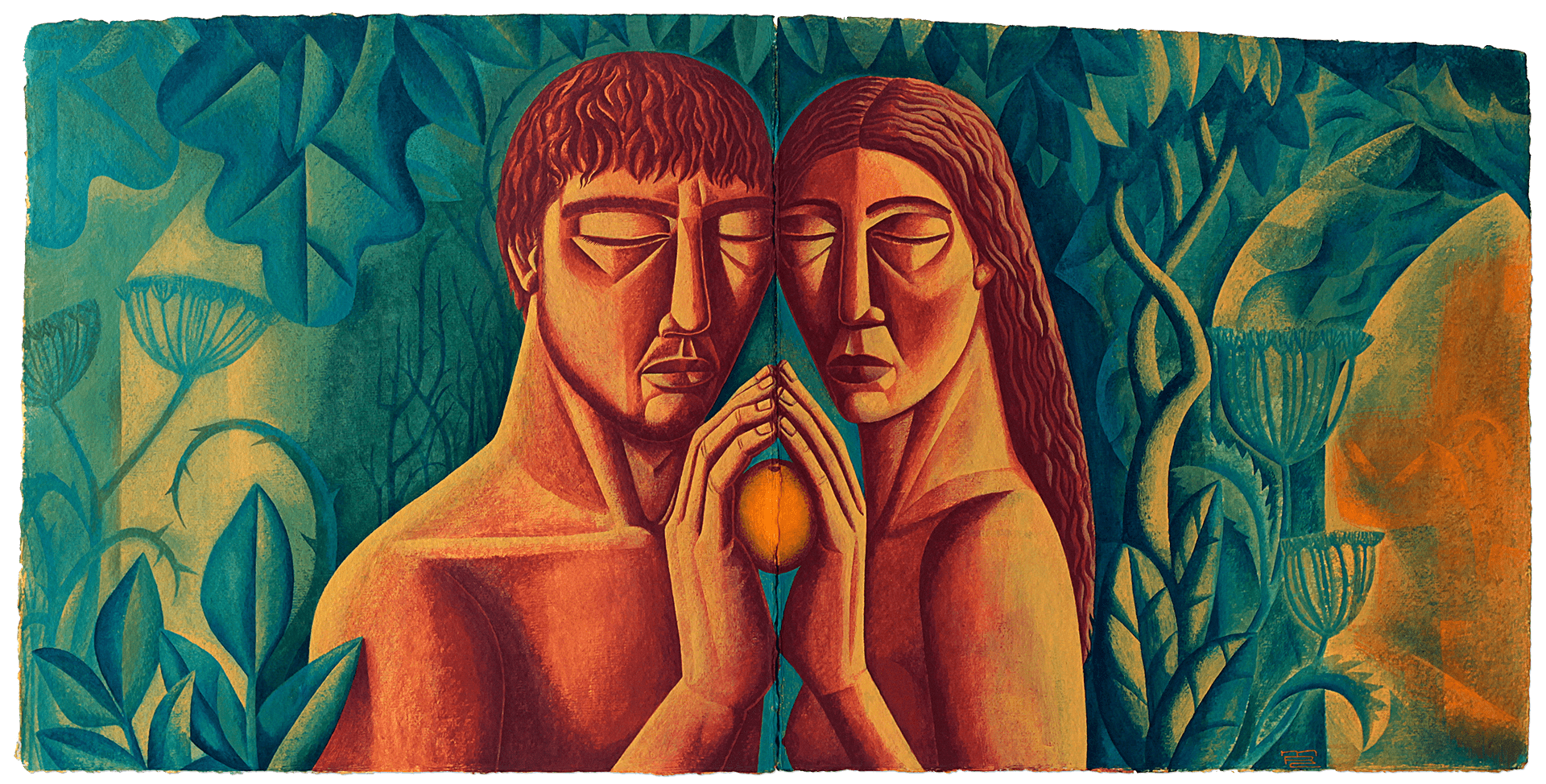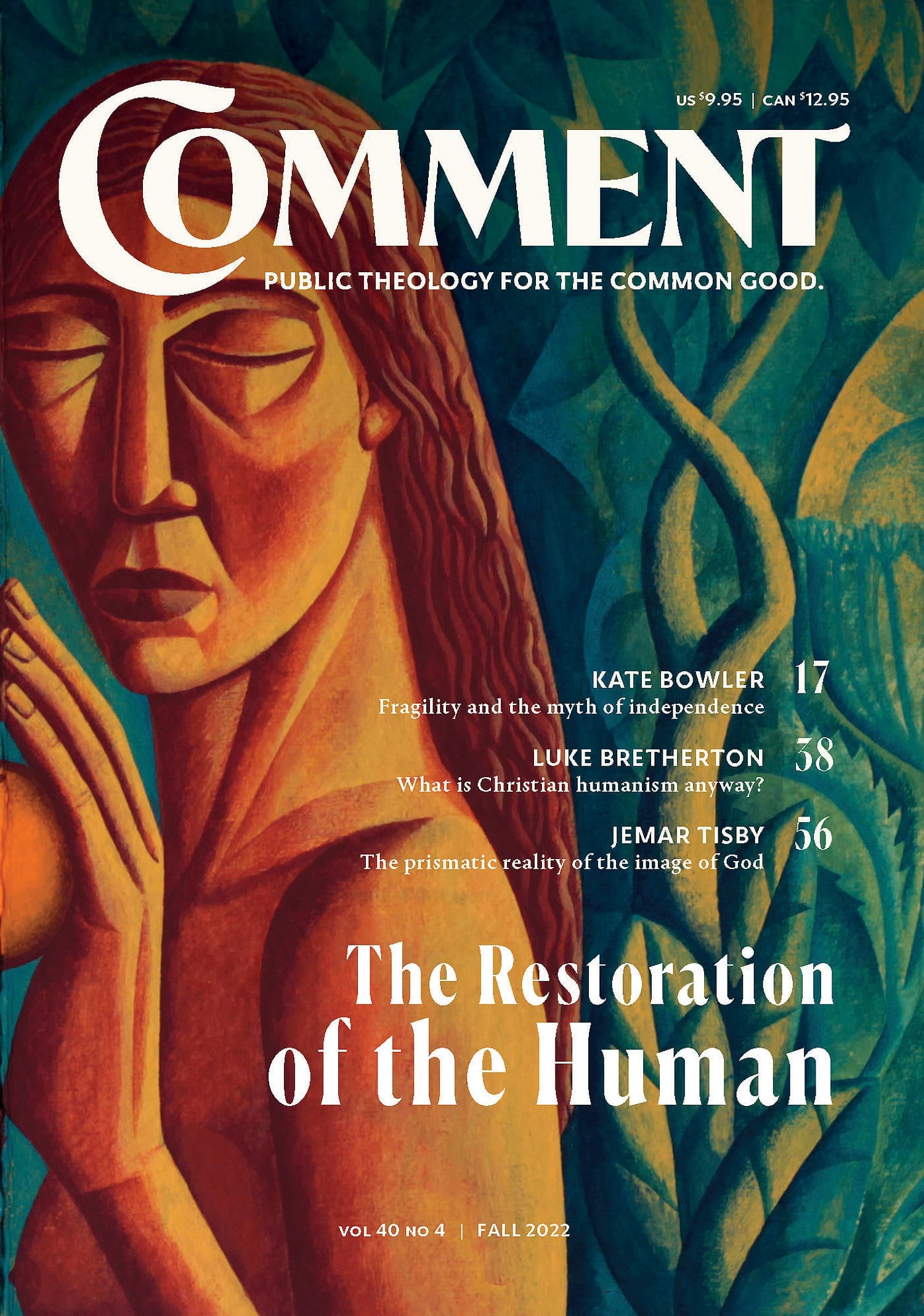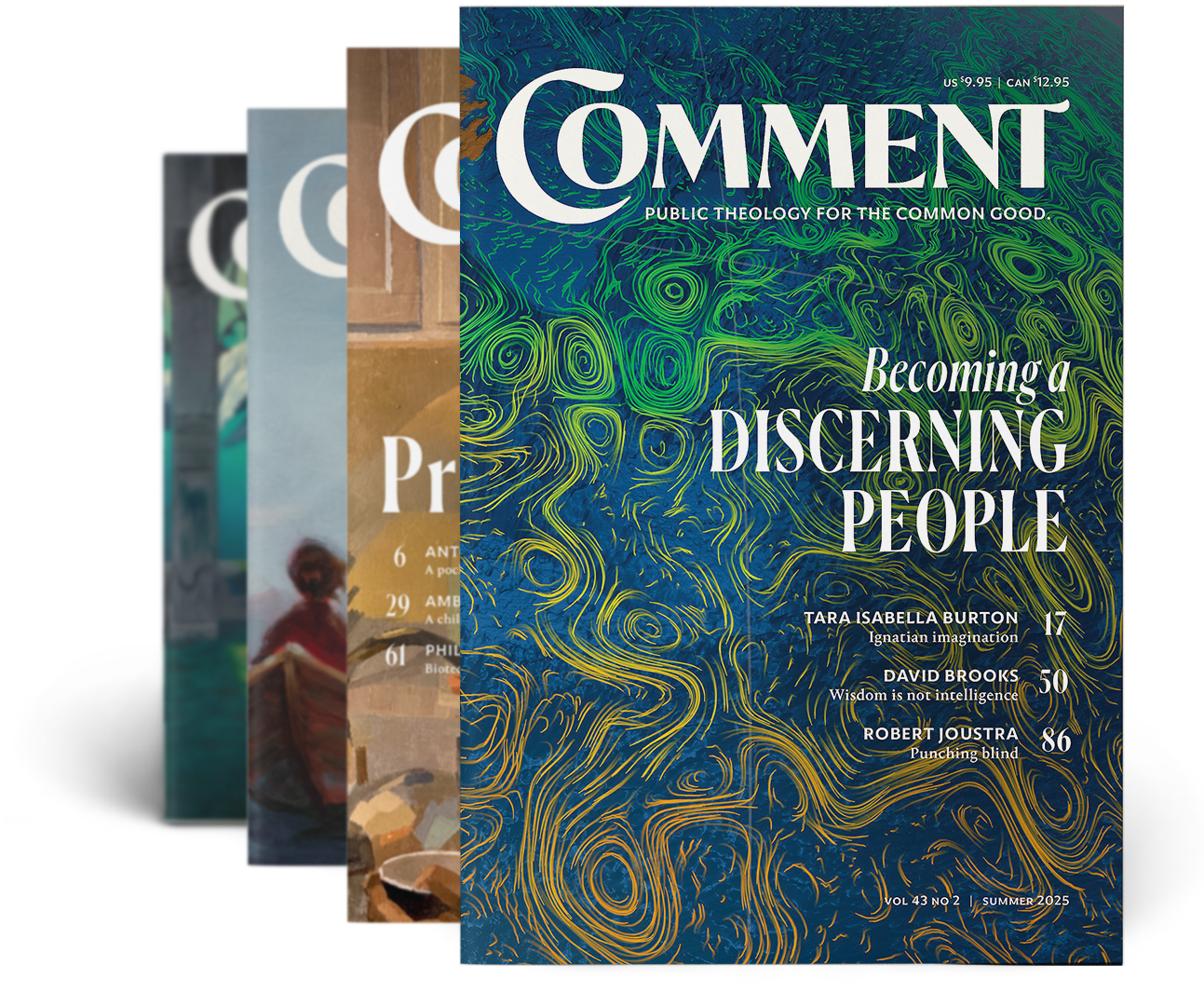A
Andy Crouch’s new book, The Life We’re Looking For, begins with a profound observation: “Recognition is the first human quest.” We come out of the womb, each of us, searching for a gaze. If we don’t find it for some reason, or we do but then it wanders elsewhere, the foundational ingredient for developing a sense of self is compromised. Children who endure sporadic or negligent attention in their earliest days “may possibly survive, but they do not thrive.”
“You have searched me, Lord, and you know me . . .” We clearly do not graduate out of this vulnerability. Adults, too, need to feel seen to feel human. The enduring heart of human longing is the desire to be known and loved.
To be human is to be called by name, not a number. It is to be attached to another, usually multiple others, and to negotiate the evolving shape of these attachments over a lifetime. It is to be perceived as legitimate, as a full participant in a family, a community, a workplace, a country. It is to have freedom to choose between good and evil, and to be capable of hurting—or healing—another. It is to be fragile, embodied, limited, mortal. It is to seek and make meaning, to feel pain, to desire, to honour, to worship. It is to hope that we are each particular and unrepeatable, even as we are desperate to know that we are never actually alone.
North Americans are undergoing a mass crisis of recognition that is chipping away at all this and numbing our natures. Fifty-four percent of Americans say that no one knows them well. The number of adults without a romantic partner has increased by a third. Sixty-one percent of young adults feel lonely almost all of the time, and over half of young mothers feel the same.
Still trickier is the fact that the recognition crisis has spread into a spider-like fracture, each of us staring at the other with a toxic combination of incomprehension and superiority. Fifty-nine percent of Americans think news organizations do not understand “people like them,” but they offer different reasons for the alienation. Black Americans say they feel misunderstood on traits affiliated with racial stereotype. White Americans feel politically misunderstood. Hispanics feel their personal interests are regularly mischaracterized. Asian Americans often feel washed over altogether. Native Americans feel tokenized.
And residential communities are curling inward: Two-thirds of those from urban and rural areas say people in other types of communities don’t understand the problems they face in their own, even as practices of neighbouring, concern for local businesses, and pride in putting down roots are actually shared. Majorities of both urban and rural residents say they understand the problems faced in other types of communities, but that those who don’t live where they do have an unfair and inaccurate view of their way of life. We presume enmity before it is demonstrated. We assume that of course we are taking the bigger view.
This issue was conceived out of a sense that while there have always been threats to human beings fulfilling their plenitude, a new tsunami appears to be barreling toward the beach. The currents aren’t necessarily in sync, but they are merging: advances in biomedicine and artificial intelligence that are rushing past basic questions of human freedom; ideologies that essentialize individual uniqueness into group-based caricature; an instrumentalist culture that idolizes efficiency, productivity, and technique at the expense of persons and a transcendent telos; social media and its scaled-up distortions; coarsening language from leaders at the tippy-top; more time spent interacting with a screen than with people; temptations toward single narratives that essentialize, especially narratives of power. And then of course all the enduring sins of selfishness and hard-heartedness that can wreck the relationships that fashioned us in the first place.
And so we are tempted to shut down, to curl inward and refuse growth. We settle in as shrinking shadows of the divine, and, slowly, without accountability, we begin to dehumanize others.
History knows this train. As Elizabeth Alexander writes in her powerful new book, The Trayvon Generation, “When human beings look at other human beings in their midst and instead of seeing other human beings see a threat, see something monstrous, or don’t see at all, our very humanity is at stake.” There is an urgent need to punch back with a coordinated strategy that insists on the infinite dignity of each person in every domain of life. There is an urgent need to have an answer to the question that has vexed every civilization since the dawn of time: What is a person? Who is the human?
And so this issue commences. I hope the pieces that follow weave together in ways that inspire you to recover sight toward your neighbour, to reinvest in the patience required to receive one another to the end of the sentence. From that humility, maybe, we might just recover the potential to see God. The God who says to each of us, “I see you. I have walked in your flesh. And I love you.”





